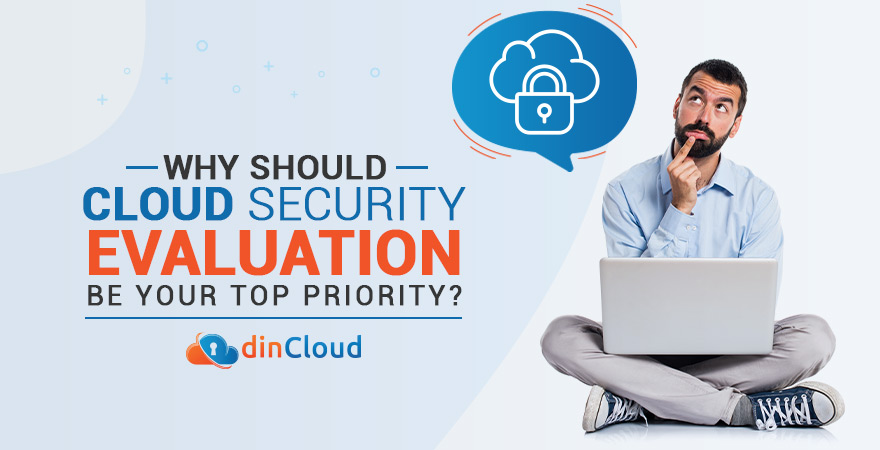Millions of businesses across the globe are trying to navigate a global pandemic that has changed almost every aspect of our lives. By now, we are well past the stage of setting up mechanisms to support mission critical operations.

From a business perspective, the Covid-19 pandemic has posed serious challenges to Business Continuity (BC). Amid global lockdowns, remote work or working from home (WFH) has been the lifeline for countless businesses.
Also Read: Cloud Security Market to Reach $68.5 BN by Year 2025
Unfortunately, the level of preparedness of most businesses to cope with a productivity crisis of this magnitude was too less. As a result, organizations found themselves in a unique dilemma where they had to choose between speed and security.
Why Speed Won from Security?
As the ongoing global crisis intensified, businesses felt the urgency to serve their customers however possible remotely. This resulted in a remote work frenzy in which cyber security went into the backdrop and speedy implementation took center stage.
While this may seem the most prudent approach in the short term, it can have devastating consequences over the mid and long term horizons. In a bid to get remote work up and running, most organizations turned their backs to security.
Also Read: Work from Home and Cloud Security Challenges
Role of Cloud Solutions in Remote Capability
For most businesses, cloud computing emerged as the most feasible platform for supporting a remote workforce. However, these were extraordinary circumstances in which this adoption of cloud was taking place.
Most importantly, the urge to restore operations to a certain degree was much stronger than the need to first sit and evaluate cyber security. This was particularly true for organizations that were relying on both cloud as well as on-premise infrastructures.
Also Read: Security Priorities for Cloud based Remote Work Environments
Speedy Cloud Migrations and Security Gaps
As an inevitable consequence of hasty remote work initiatives, most organizations have left behind a trail of gaps in cyber security. These gaps may seem insignificant at first glance but their adverse effects can engulf the entire operations of a business.
So, what is the way forward, this is one question that is gaining more importance with every passing day. Here are a few reasons to make a strong case for immediate evaluation of the security of your cloud solutions.
Also Read: How to Attain Network Security in the Cloud & Beyond?
Remote Work is Here to Stay
When implementing remote work initiatives, most entities considered it a stop gap arrangement, thus lowering the stakes for security. Countless surveys and workforce trends are indicating remote work is here for the long haul.
So, a total revision of approach is required when you evaluate cyber security solutions not as a temporary affair, but a permanent reality. This shift in perception will provide the initial thrust to evaluate the security of your remote work platforms.
Also Read: Adoption of Cloud Security Solutions Registers a Sharp Increase
Increased Threat Surface
Traditionally, sensitive data and processes were run exclusively over internal networks with almost fool proof security. As the adoption of cloud powered productivity platforms and tools increases, the threat surface has also increased exponentially.
Cyber miscreants now have a wide range of attack vectors to target your infrastructure. As more data and processes move to and fro between remote work environments, there is a much higher incentive for cyber criminals to mount cyber attacks.
Also Read: dinCloud Boosts its Capacity and Cyber Security Posture
Capabilities of Your Cloud Service Provider (CSP)
When hastily moving to cloud powered solutions, did you sit back and thoroughly evaluate the cyber security profile of your cloud provider. For most entities, the answer to this question would be in the negative, as this was seldom a priority before.
At the peak of this pandemic, most businesses felt a sigh of relief just to learn that a cloud provider was even prepared to entertain them. Now that the dust has settled, it is high time to sit back and thoroughly evaluate the security of your cloud provider (CSP).
After all, you have entrusted your data and mission critical applications to the cloud provider whose cyber security credentials are yet to be ascertained. If the cyber security profile of your CSP is not at par with your needs, now is the time to switch your CSP.
Also Read: 6 Ways to Balance Remote Productivity and Security
A Cyber Security Crisis is Brewing
Leading cyber security providers have recorded highest levels of cyber attacks in history that include viruses, malware, ransomware, identity theft and much more. In the absence of a sound security mechanism, your infrastructure could be the next victim soon.
By now, cyber criminals have gained sufficient visibility into half cooked remote work solutions that are lacking a cohesive cyber security posture. In some cases, we may witness mass scale cyber attacks on similarly insecure infrastructures simultaneously.
Also Read: dinCloud Beefs Up Its Cyber Security Posture Amidst Covid-19
What Makes dinCloud a Secure CSP?
From a cloud security perspective, it is about time you separate apples from oranges and go for cloud providers (CSP) that take a holistic view to cyber security. At dinCloud, our security protocols include both our cloud infrastructure and your endpoint devices.
Also Read: Security Benefits of Cloud Computing Solutions
As a result, there is no “missing link” in the cloud security chain that can be exploited by any threat actor to mount an attack. If you want a secure, robust and compliant cloud platform, then dinCloud is the best among so many choices out there.
Feel free to Contact Us for any further questions you may have about dinCloud’s cyber security protocols and best in class Cloud Hosted Solutions.


